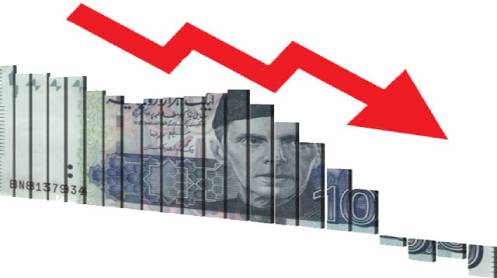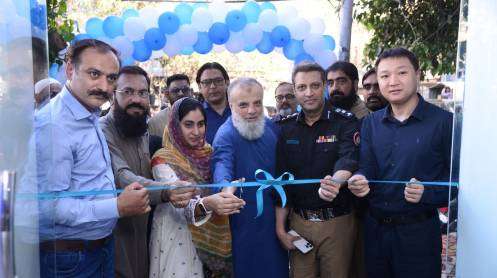ISLAMABAD: While it remains too early to assert definitively, several indicators suggest that Pakistan’s economy may have weathered the worst of its recent challenges.
There were serious concerns that due to the IMF’s push for easing import controls and letting the exchange rate float, the rupee may see further free fall. However, after hitting a record low of Rs335 on September 5, the rupee is regaining ground, stabilising at approximately Rs292 to the US dollar, a level where the caretakers inherited.
Foreign exchange reserves have surged past $13 billion, including $5.5 billion held by commercial banks. Even with a notable spike in fuel prices, the inflation rate has slowed and now stands at 27.4%.
As caretaker federal ministers take charge of their respective ministries, they face a daunting task. The latest entrant, the federal minister for privatisation, rightly directs attention towards Pakistan International Airlines (PIA) and Pakistan Steel Mills (PSM), the two ailing state enterprises that have consistently incurred heavy losses with no resolution.
Read Economy’s four ticking bombs
Though still operational, PIA reports monthly losses of Rs13 billion, while PSM, shuttered since 2015, continues to pay salaries to around 3,100 employees. The sustainability of the recent financial support to PIA raises questions about its alignment with taxpayers’ interests, but the intensity of finding a solution is a worthwhile effort.
The minister for power has been grappling with public outrage over the exorbitant electricity bills received in August. Having chaired the 2019 inquiry committee on the power sector, he possesses insights into necessary measures for enhancing energy sector efficiency.
While commendable efforts are being made to enforce anti-theft measures for electricity and gas, it is equally crucial to implement some of the routine recommendations outlined in the committee’s report. Interestingly, despite the commissions’ suggestion for expertise-driven leadership in the power ministry, the government is reportedly contemplating going in the opposite direction by appointing bureaucrats as chief executive officers to head various power companies.
Read more ‘Interim govt’s measures will stabilise economy’
Meanwhile, the minister for commerce and industries is vigorously pursuing ambitious goals, including a more than 35% increase in short-term exports. For years, successive governments have been fixing lofty export targets but have not undertaken any serious reforms.
As a result, those targets remain on paper, and exports have barely increased for the last 15 years. On the other hand, Pakistan’s share in global markets has been declining annually by about 1.45%.
Further, no attention was given to widening the export basket as most non-textile industries were content with selling in the protected domestic market.
Considering the current economic landscape and IMF-imposed conditions, giving subsidies would be impossible. Concerns linger that the government may opt for a populist route by seeking more import taxes to appease the powerful groups. This measure would significantly undo any efforts to curb smuggling and bring the economy to the formal sector.
In a broader context, the caretaker government’s primary focus is on facilitating the promised influx of $30 to $50 billion in foreign investment over the next three to four years.
The previous administration expressed optimism that this investment could significantly enhance productivity and transform barren lands into arable farmland. Anticipation surrounds the potential for Pakistan to achieve self-reliance in food production, saving approximately $10 billion in foreign exchange and doubling current food exports from $5 billion to $10 billion.
Further read PkMAP calls for moot on economy
However, it is imperative to recognise that while beneficial, foreign investment and short-term enforcement measures do not constitute long-term solutions. Successful transitions from aid-dependent to export-led growth, as observed in numerous developing countries, hinge on significant taxation and trade policy reforms.
The significance of an independent and efficient judiciary has also played a crucial role in implementing economic reforms in many developing countries. In this context, the new chief justice’s stance against judicial activism should be viewed as a breath of fresh air.
In conclusion, Pakistan’s economic woes may be gradually giving way to a new chapter. The caretaker government’s effectiveness in doing the groundwork for addressing the most pressing challenges – state-owned enterprise reforms, exchange rate stability, trade policy reforms and facilitating the planned inward investment – will be greatly helpful for the incoming government.
While the path ahead may be fraught with difficulties, putting the country on outward-oriented economic policies is vital for getting out of the current economic meltdown.
The writer currently serves as a trade arbitrator for WTO. Previously, he has served as Pakistan’s ambassador to WTO and FAO’s representative to the United Nations at Geneva







